Serving 221 students in grades 11-12, Reach Charter ranks in the bottom 50% of all schools in Texas for overall test scores (math proficiency is bottom 50%, and reading proficiency is bottom 50%).
The percentage of students achieving proficiency in math was 20-24% (which was lower than the Texas state average of 78%). The percentage of students achieving proficiency in reading/language arts was 10-14% (which was lower than the Texas state average of 72%).
The student:teacher ratio of 25:1 was higher than the Texas state level of 14:1.
Minority enrollment was 99% of the student body (majority Hispanic), which was higher than the Texas state average of 75% (majority Hispanic).
School Overview
School Type
Grades Offered
Grades 11-12
Total Students
221 students
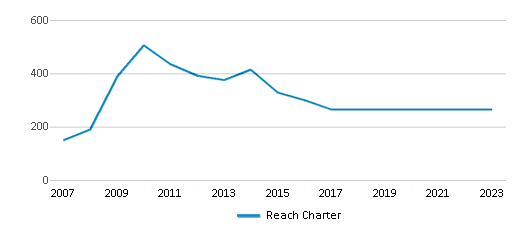
Gender %
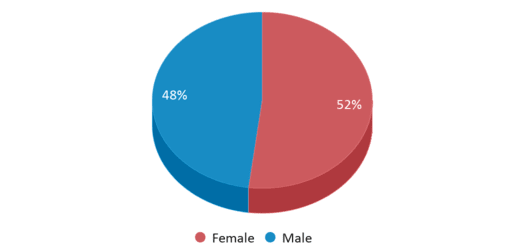
Total Classroom Teachers
9 teachers
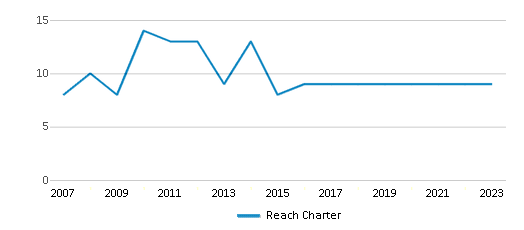
Students by Grade
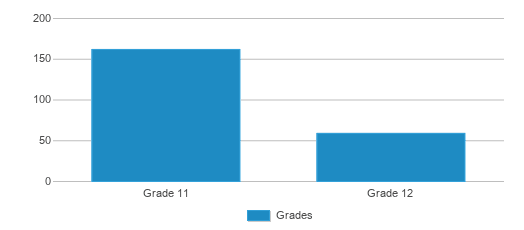
School Rankings
Math Test Scores (% Proficient)
(16-17)20-24%
78%
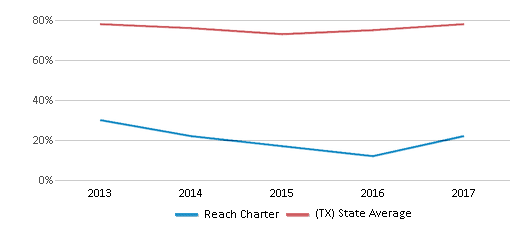
Reading/Language Arts Test Scores (% Proficient)
(16-17)10-14%
72%
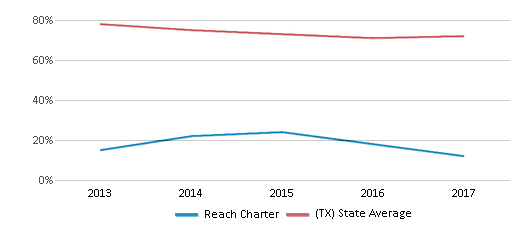
Student : Teacher Ratio
25:1
14:1
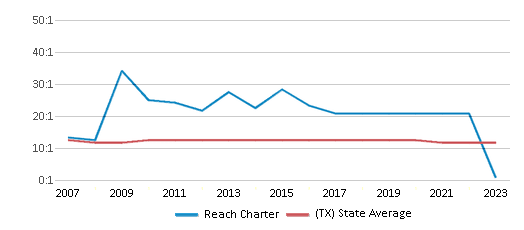
American Indian
n/a
n/a
Asian
n/a
6%
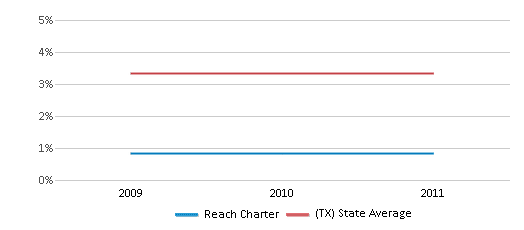
Hispanic
60%
53%
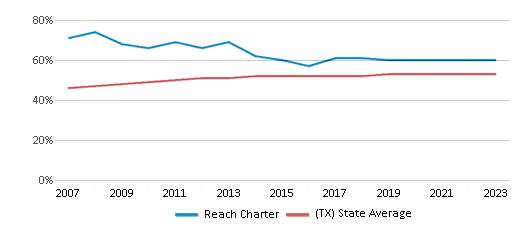
Black
39%
13%
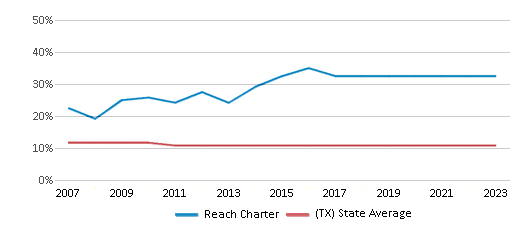
White
1%
25%
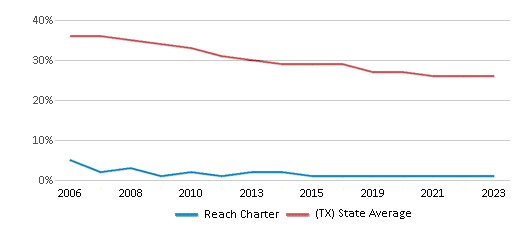
Hawaiian
n/a
n/a
Two or more races
n/a
3%
All Ethnic Groups
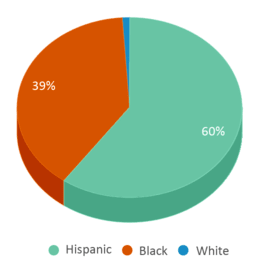
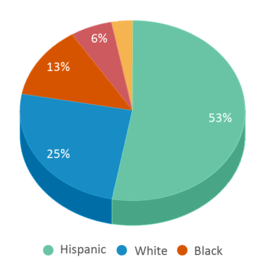
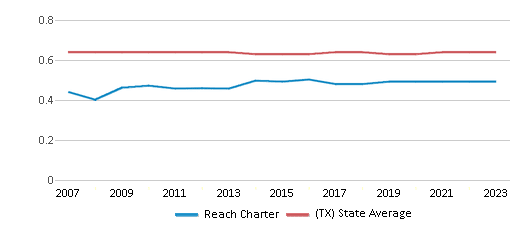
Graduation Rate
(15-16)30-34%
89%
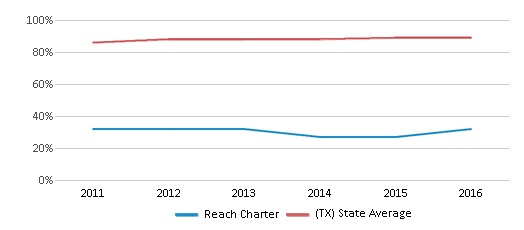
Eligible for Free Lunch
74%
57%
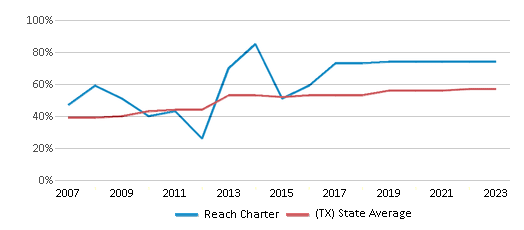
Eligible for Reduced Lunch
5%
5%
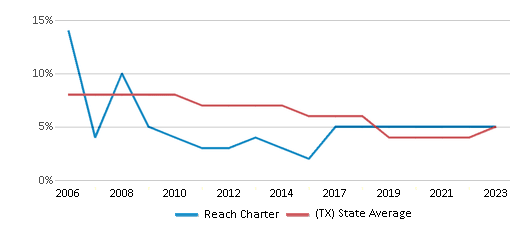
School Statewide Testing
School District Name
Source: National Center for Education Statistics (NCES), TX Dept. of Education
Frequently Asked Questions
What percent of students have achieved state testing proficiency in math and reading?
20-24% of students have achieved math proficiency (compared to the 78% TX state average), while 10-14% of students have achieved reading proficiency (compared to the 72% TX state average).
What is the graduation rate of Reach Charter?
The graduation rate of Reach Charter is 30-34%, which is lower than the Texas state average of 89%.
How many students attend Reach Charter?
221 students attend Reach Charter.
What is the racial composition of the student body?
60% of Reach Charter students are Hispanic, 39% of students are Black, and 1% of students are White.
What is the student:teacher ratio of Reach Charter?
Reach Charter has a student ration of 25:1, which is higher than the Texas state average of 14:1.
What grades does Reach Charter offer ?
Reach Charter offers enrollment in grades 11-12
What school district is Reach Charter part of?
Reach Charter is part of Houston Independent School District.
Recent Articles

What Is A Charter School?
Explore the world of charter schools in this comprehensive guide. Learn about their history, how they operate, and the pros and cons of this educational innovation. Discover key facts about charter schools, including admission policies, demographics, and funding, as well as what to look for when considering a charter school for your child.

10 Reasons Why High School Sports Benefit Students
Discover the 10 compelling reasons why high school sports are beneficial for students. This comprehensive article explores how athletics enhance academic performance, foster personal growth, and develop crucial life skills. From improved fitness and time management to leadership development and community representation, learn why participating in high school sports can be a game-changer for students' overall success and well-being.

February 05, 2025
Understanding the U.S. Department of Education: Structure, Impact, and EvolutionWe explore how the Department of Education shapes American education, from its cabinet-level leadership to its impact on millions of students, written for general audiences seeking clarity on this vital institution.





